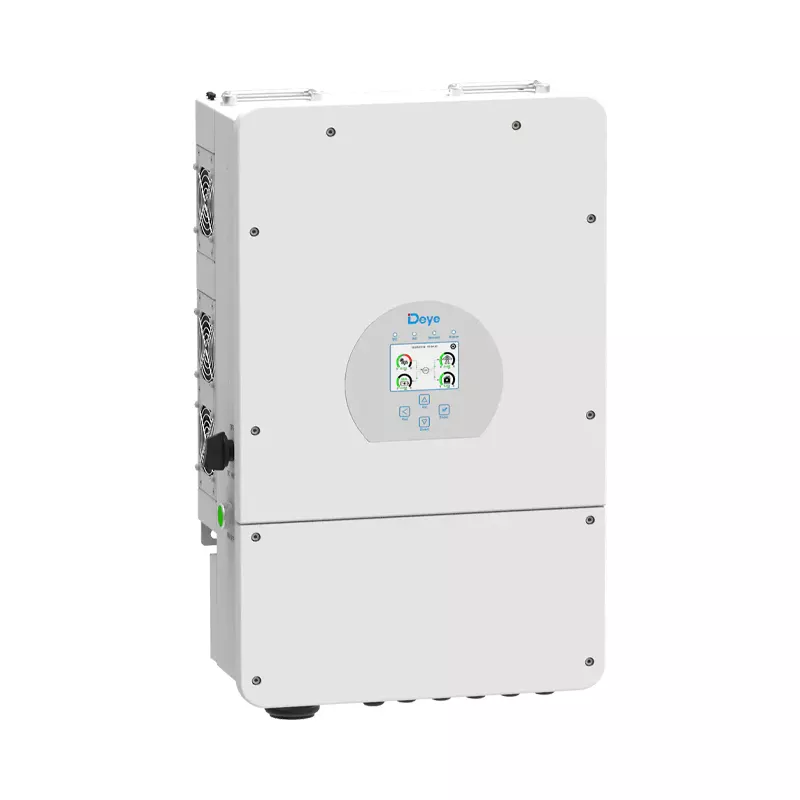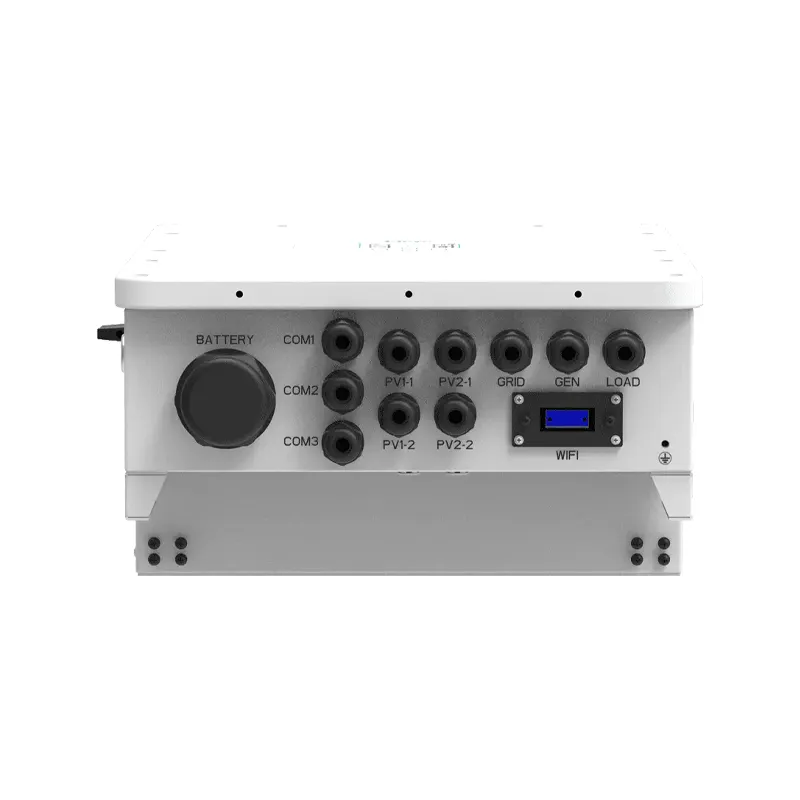Yes, a hybrid inverter can work without a grid connection! These inverters are quite versatile, designed to operate with both grid and off-grid setups. Essentially, they manage power from solar panels, the grid, and batteries. In an off-grid scenario, the inverter draws energy from solar panels or batteries. This makes it great for remote locations or places with unreliable grid power. Additionally, hybrid inverters often include smart features for efficient energy management. So, whether you’re going off-grid or just seeking energy independence, a hybrid inverter is a reliable choice!

What is a Hybrid Inverter?
A hybrid inverter is a smart, multi-functional energy device that’s useful for solar power systems. It combines the functions of a traditional inverter and a battery inverter. This means it can manage power from solar panels, the grid, and battery storage. It’s like a control center that switches between these sources seamlessly. Hybrid inverters are great for both grid-connected and off-grid solar systems. They help in storing excess solar energy in batteries for later use. This makes them super efficient and cost-effective, especially if you want to maximize your solar investment!
How does a Hybrid Inverter work?
A hybrid inverter is an amazing piece of technology that works like a brain for solar energy systems. It’s a bit like a regular inverter but with some cool extra features. Here’s how it works:
First, solar panels on your roof capture sunlight and turn it into direct current (DC) electricity. But our homes use alternating current (AC), so the inverter’s first job is to convert DC into AC. This makes the electricity usable for your home appliances.
What makes a hybrid inverter special is its ability to work with batteries. It can store excess solar energy in these batteries. So, when your solar panels produce more power than you need, the inverter saves it for later. This is great for nights or cloudy days when the panels aren’t producing much energy.
The hybrid inverter also manages how and when to use the stored energy. It decides whether to use solar power, battery power or draw from the grid. It does this based on what’s needed and what’s most cost-effective. For example, it might use battery power during peak electricity rate times to save money.
Another cool thing is that if there’s a power outage, the hybrid inverter can switch to battery power. This means you can still have electricity even when the grid is down.
In a grid-tied system, the hybrid inverter can send excess power back to the grid. This can earn you credits on your electricity bill, depending on where you live.
Lastly, many hybrid inverters come with smart features. They connect to your phone or computer, letting you monitor and manage your energy usage. This helps you understand your energy habits and find ways to use energy more efficiently.
The difference between an Inverter and a Hybrid Inverter?
Understanding the difference between a regular inverter and a hybrid inverter is pretty straightforward. A regular inverter’s main job is to convert direct current (DC) from solar panels or batteries into alternating current (AC), which powers your home appliances. It’s like a one-way street, taking energy from one source and making it usable for your home.
Now, a hybrid inverter does everything a regular inverter does, but it’s more like a two-way street with extra features. It can not only convert DC to AC but also store excess energy in batteries. This means when your solar panels generate more electricity than you need, the hybrid inverter saves it for later use, like during the night or on cloudy days.
Hybrid inverters also smartly manage where your electricity comes from. They can seamlessly switch between solar power, battery storage, and the grid. This is great for efficiency and can save you money, especially if electricity prices fluctuate during the day.

Pros and Cons of a Hybrid Inverter System
When considering a hybrid inverter system for your home, it’s helpful to weigh the pros and cons.
Pros of a Hybrid Inverter System
Energy Independence: Hybrid inverters provide a significant level of energy independence. They allow you to store excess solar power in batteries for use when the sun isn’t shining, like at night or on cloudy days.
Cost-Effective: Over time, using a hybrid inverter can save you money. By storing excess energy, you rely less on the grid, reducing your electricity bills. Plus, during peak hours when electricity is more expensive, you can use your stored energy instead.
Backup Power: In case of a power outage, a hybrid inverter can switch to battery power. This ensures that your essential appliances keep running, providing a sense of security and comfort.
Grid Interaction: Hybrid inverters can smartly interact with the electricity grid. They can feed excess energy back to the grid, potentially earning you credits, depending on your area’s policies.
Smart Technology Integration: Many hybrid inverters come with smart monitoring systems. You can track your energy production and consumption, helping you make informed decisions about your energy use.
Eco-Friendly: By maximizing the use of solar energy, hybrid inverters help reduce reliance on fossil fuels, contributing to a greener environment.
Cons of a Hybrid Inverter System
Higher Initial Cost: Hybrid inverters are generally more expensive upfront than standard inverters. This might be a significant factor for those on a tight budget.
Complex Installation: Installing a hybrid inverter system is more complex than a regular inverter system. It requires professional installation, which can add to the cost and time.
Battery Dependence: The efficiency of a hybrid system heavily relies on batteries. If the batteries are of poor quality or not well-maintained, it can affect the overall performance of the system.
Size and Space: Hybrid inverters, along with batteries, require more space than standard inverters. This might be a challenge in homes with limited space.
Battery Replacement Cost: Over time, you may need to replace the batteries, which can be an additional cost.
Technology Adaptation: As technology evolves, newer and more efficient systems come up. Your current system might become outdated, requiring an upgrade for better performance.
A hybrid inverter system offers great benefits like energy independence, cost savings, and eco-friendliness, but it’s also important to consider factors like initial costs, complexity, and maintenance. Understanding these pros and cons will help you make an informed decision based on your specific needs and circumstances.
